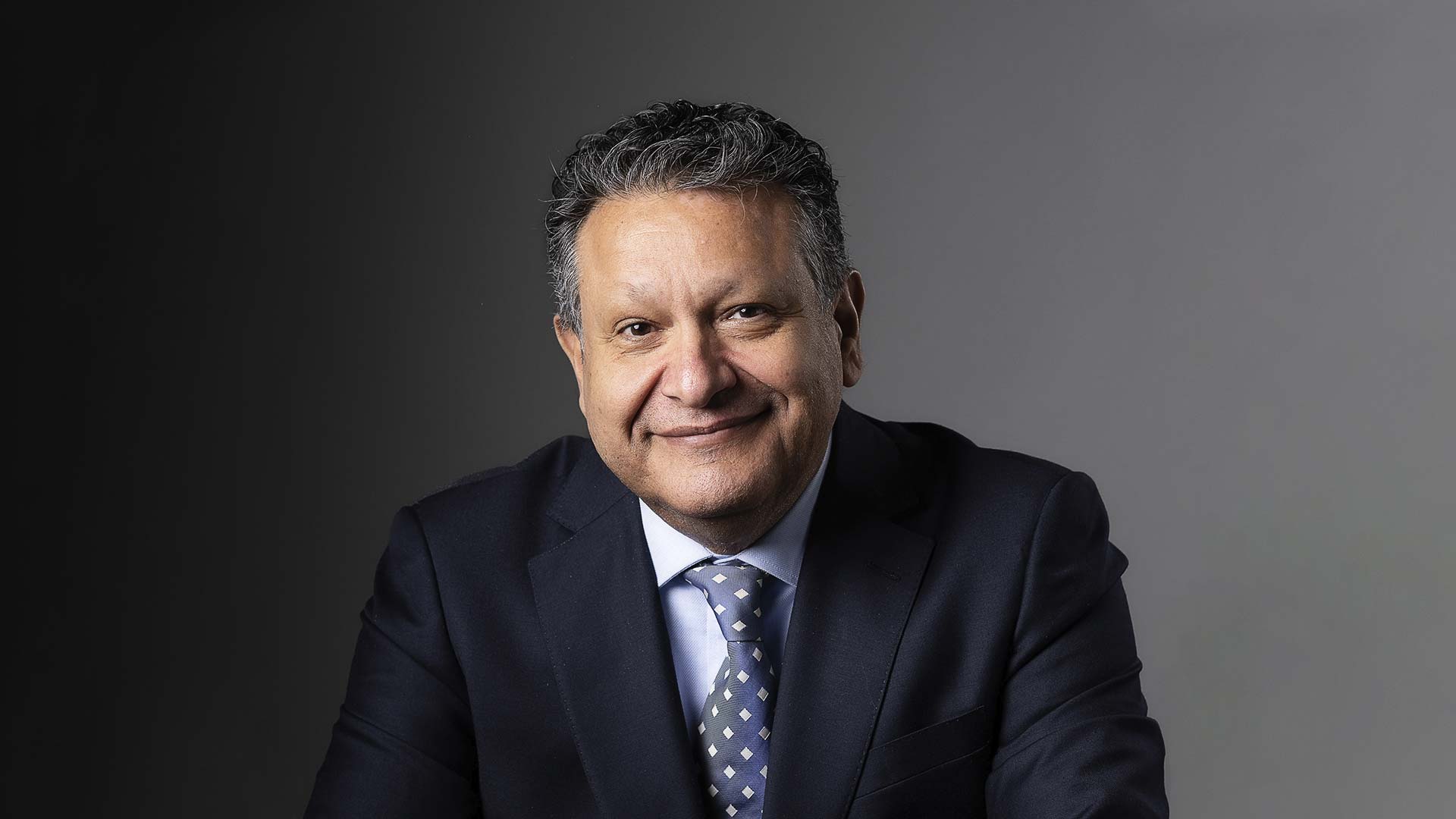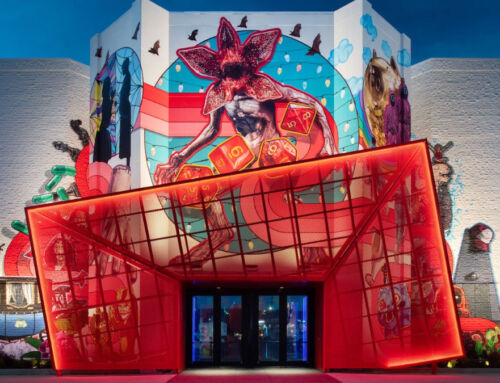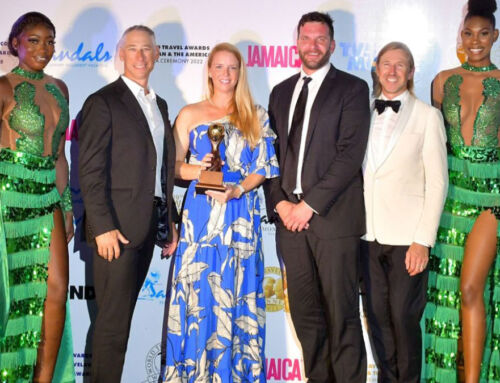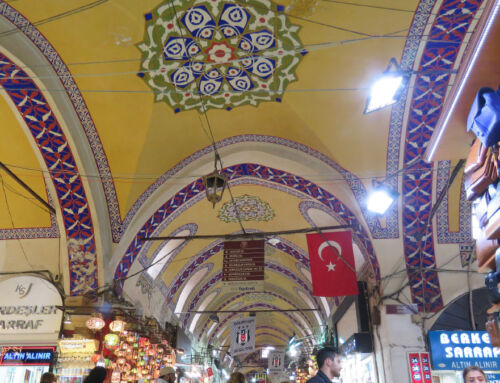We talked to Alain Al Helaly, an engineer with more than three decades of international experience in fields as diverse as leisure and tourism, entertainment, marine technology, biotechnology and green technologies. During his extensive career he has combined traditional engineering skills with the design of theme park attractions or sustainable technical solutions, and has even registered his own patents. He has an interesting story to tell.
Amusement Logic: You are a Frenchman from Iraq, but you are also strongly connected to the UK, Saudi Arabia and now Sweden. Tell us about your beginnings.
Alain Al Helaly: Well, I’m a Frenchman with Babylonian background because I was born in Baghdad. I moved to the UK as a child and then grew up between the UK and France. That is why you don’t hear the “froggy” accent when I speak English. At the time I was interested in everything, even flying, engineering, nature, especially biology and medicine. I studied to become a veterinarian for a year and a half, but then switched to Marine Engineering because I wanted to discover the world.
A.L.: What does naval engineering consist of?
A.Al-H.: It makes you a multi-tasker, a hard worker, a good thinker, a survivor, because when at sea you are alone with God and the water. If you don’t do your job right, you are in serious trouble. You have to find your own solutions; you have to survive. Apart from the marine engineering background, what everybody does, electro mechanical, electronics, math, physics, chemistry, naval architecture…. God knows what else, there’s a lot of doing in a workshop with your hands to manufacture mechanical pieces. If you really get sent out to the sea, you need to be capable of being independent, of repairing, of manufacturing, of fighting a fire or saving lives at sea, in order to reach your final port safely and in good shape.
A.L.: Working on merchant ships must be tough on the family too.
A.Al-H.: Yes, especially as I became a father with the birth of my first son in 1985. In the Merchant Navy you get a good month and a half off after every three months on duty, so you really spend some quality time at home. But I realized that I really had to find something on land to be closer to my wife because , God bless her soul, she was pregnant again.
A.L.: That is when you landed in Aquaboulevard, Paris’ famous indoor waterpark?
A.Al-H.: It is a funny story, but very true. I was looking through the Figaro magazine. At the end they had a job section, just some little ads without great qualifications. But a title drew my attention: “Le paquebot de Paris” is about to open and needs a “C. A. P. Mechanicien”. Now, paquebot means cruise ship in French, but CAP (French acronym for Certificate of Competency) is a technical certificate you can easily obtain at the age of 15. However, I went in thinking they meant a “Captain Mechanic”.
I took the address, there was no email yet at that time, and I thought it must be a big boat that came up from the sea through the Seine River and it’s going to be a hotel or something. I didn’t even check and just sent my application. It happens that the guy who reviewed it was a former marine engineer from the French Navy, Michel Brunet. Later, when we became friends, he revealed to me that he had only asked me in for the interview to understand how someone with my qualifications could apply for such a simple job position.
A.L.: That must be one of the funniest ways to enter the entertainment industry!
A.Al-H.: So Aquaboulevard is in a big building, they were under construction. Michel asks me: “do you know what the job is about? It’s not for a captain, it’s just for a junior mechanic. But since you are a marine engineer, you might be interested in the position I have also created to control the site”. That is how I became the Assistant Technical Manager.
I was very used to working with pumps, control panels, pipes, valves, water treatment systems and so forth, there was nothing that I didn’t know. And I was very happy because I got to sleep at home at the end of the day. It was really very interesting, I worked very hard, got a lot of respect immediately and made sure the project was delivered correctly.
As I mentioned before, my wife was pregnant again. Our second son was actually born on the same day Aquaboulevard opened to the public: April 15th, 1989. I will never forget that date. She gave birth at 4 o’clock in the morning and at 5 I was on site to prepare for the grand inauguration.
A.L.: And how did you move on to Euro Disney?
A.Al-H.: After about a year, the man in charge of the project, Dominique Cocquet left us to become Vice President for Governmental Relations at Disneyland Paris. He liked me a lot and recommended I should apply for a job there. I was then picked up by the Facilities Management Director Mr. Eckart Schultz, a German guy who was very pleased to find a Frenchman who is fluent in English. He hired me as an Assistant Superintendent before the park opened in 1992.
Most of the American task force that came over during construction wanted to go back home and let somebody else take over. I was a fast learner, a hard worker and found a lot of little things that saved us from disasters. When Euro Disney opened I became a Maintenance Division Manager for roller coasters and other rides & attractions in Frontierland. Disney was a great experience when it comes to technology, maintenance, programming and high quality standard operating procedures, really the best training.
A.L.: However, you moved back to the Middle East
A.Al-H.: I have always been tied to that region and especially to Saudi Arabia for family reasons. But in 1996, a very nice American guy, who was an Engineering Manager from the task force that came to open Euro Disney and was close to retirement, introduced me to an American-Egyptian millionaire who was developing a big theme park in Egypt (Dreamland): They invited me over, I left Disney and went to work in Egypt for two years.
It was a huge change, of course. Disney is fantastic, as I have said before. But it’s also like a military base. You don’t go left or right as you wish and you have to follow the system. And ALL rides are pre-selected, so you do as the imagineers are telling you and you follow the book. But again, Disney is Disney.
In Egypt it was completely different and there were so many different rides. This is when I really got into the design of rides, collaborated with various manufacturers and even patented a few ideas. And that is why I continued my career in this region, as entertainment projects popped up all around the Middle East after the turn of the century, such as Star City in Riyadh and Restless Planet in Dubai. I even moved to Dubai to work from there for a few years.
A.L.: Dubai has changed a lot since then.
A.Al-H.: Yes, and the region is going to change a lot more because Saudi Arabia is now taking the lead. The Vision 2030 is a vision that belongs to the realm of politics and progress of KSA. What interests me is what’s really happening. I know the Saudi social fabric extremely well. For the last 40, 45 years, I’ve been going there since I was a young man, even when I was at school. There’s a huge positive change in the mentality. There’s an openness nobody could have ever dreamed of before. On top of that, Saudi has beautiful beaches on the Red Sea, beautiful mountains, green valleys, deserts. It is an extreme climate and they have everything you can think of. And they are investing a lot, not just in entertainment & leisure, but more so in agriculture, infrastructure and sustainability.
A.L.: So now you have your own company, Albeea, and are involved in developing your own ideas, your own patents.
A.Al-H.: Yes. However, I still do some consultation in the leisure business, for example, optimizing steel structure costs for ride companies or developing Edutainment concepts. But I mostly work on my own stuff now, ideas related to sustainability, such as an air treatment system using electronic charges, solar cooling systems, water collection, wind energy or floating concrete buildings.
A.L.: Which ties in well with your marine engineering background.
A.Al-H.: Yes, certainly. Floating concrete structures are the best environmental structures in water, lower cost, easy to produce and build with much longer life in water up to 200 years! Imagine having a floating house, hotel or a spa in marine locations where it’s difficult to access or they are just not considered as prime. Living surrounded by water is wonderful. The construction process is very fast and low cost, and the floating part requires very low maintenance.
A.L.: You’ve been working for over 30 years now. Where do you see the leisure industry headed to?
A.Al-H.: All parks, themed or water-based, are interesting projects for engineers and clients. But we need to educate people as well. It is our duty as creators to entertain people while expanding their consciousness through knowledge and science. It is our duty as engineers to explain to people really how things work and how we solve problems and prepare for the future, no matter if the issue is related to renewable energies, environmental pollution, water scarcity, recycling and so forth. People need to know how a solar cell works or how to generate hydrogen-based clean energy without going to university. We can show them and it’s cheap, it’s low cost. You educate them and they have fun.
We leave you a link, in case you are curious, to Alain Al-Helaly’s company, Albeea.






